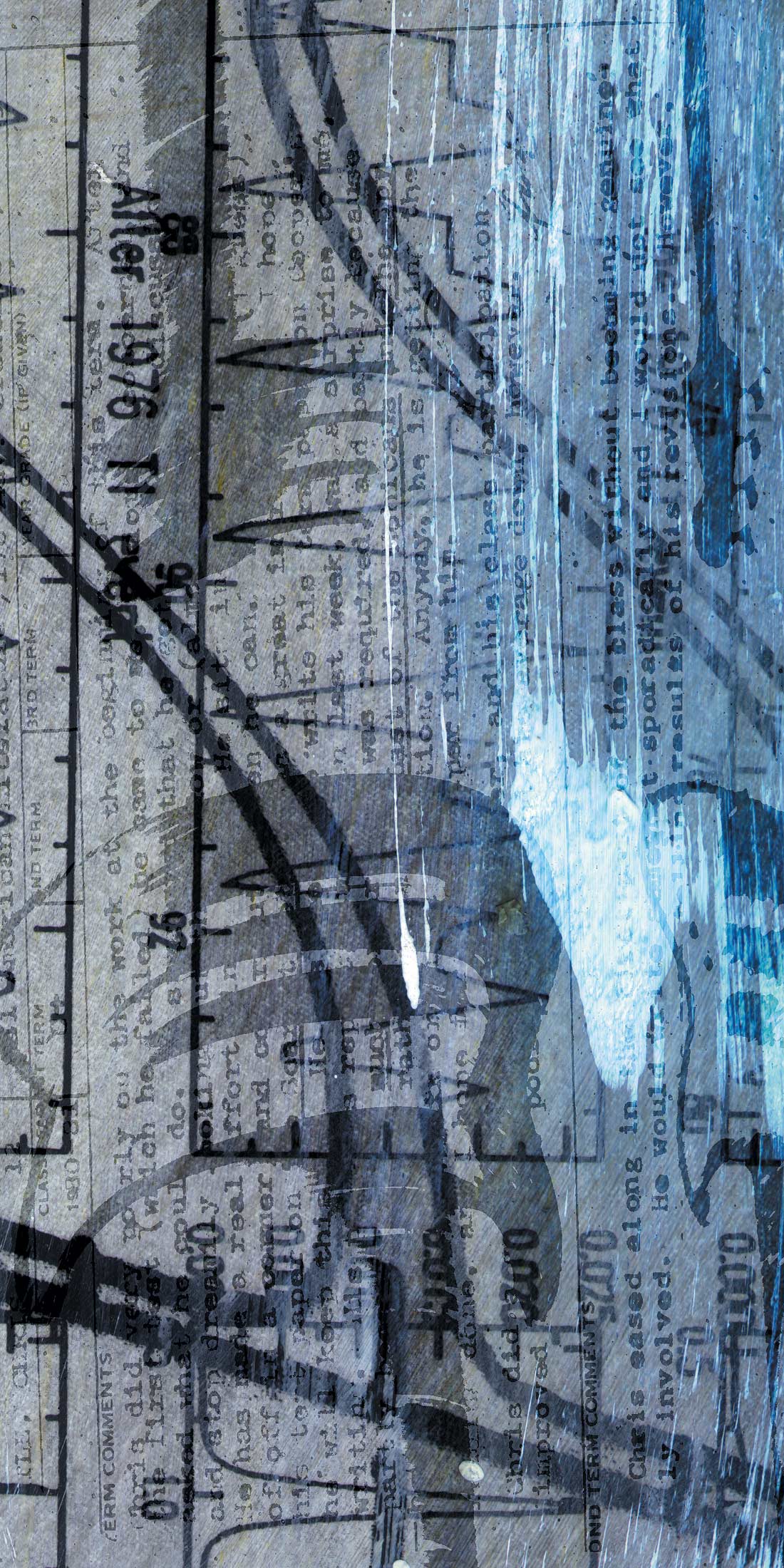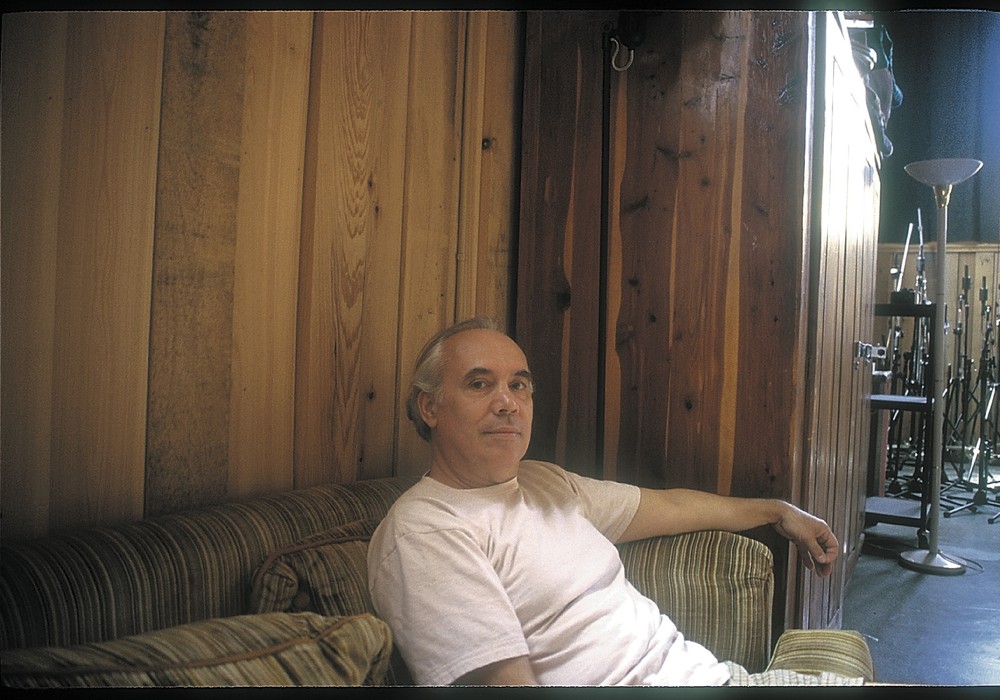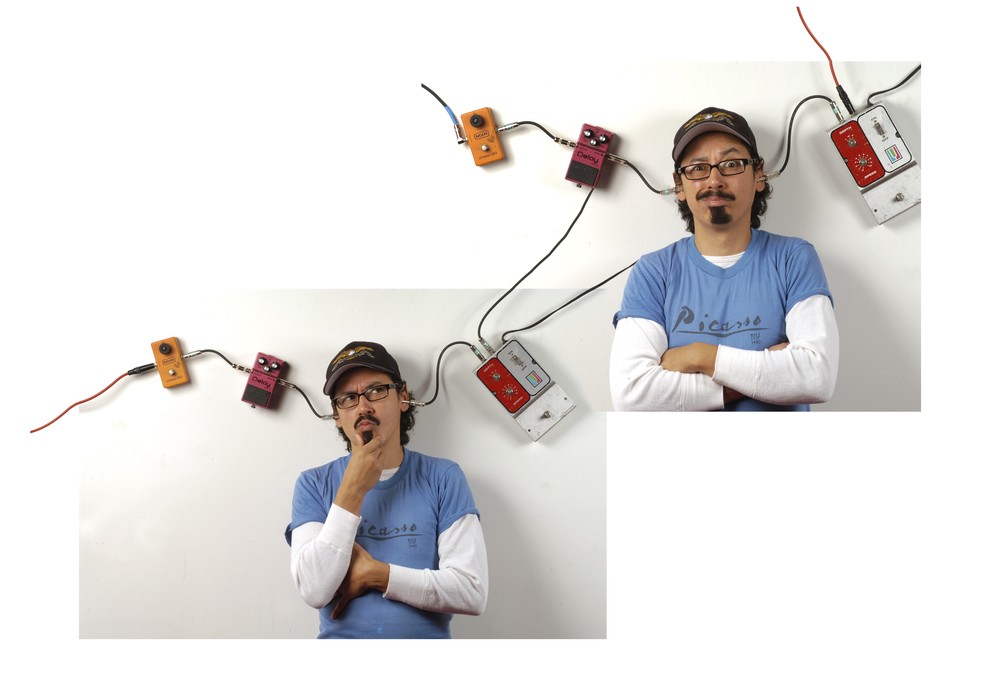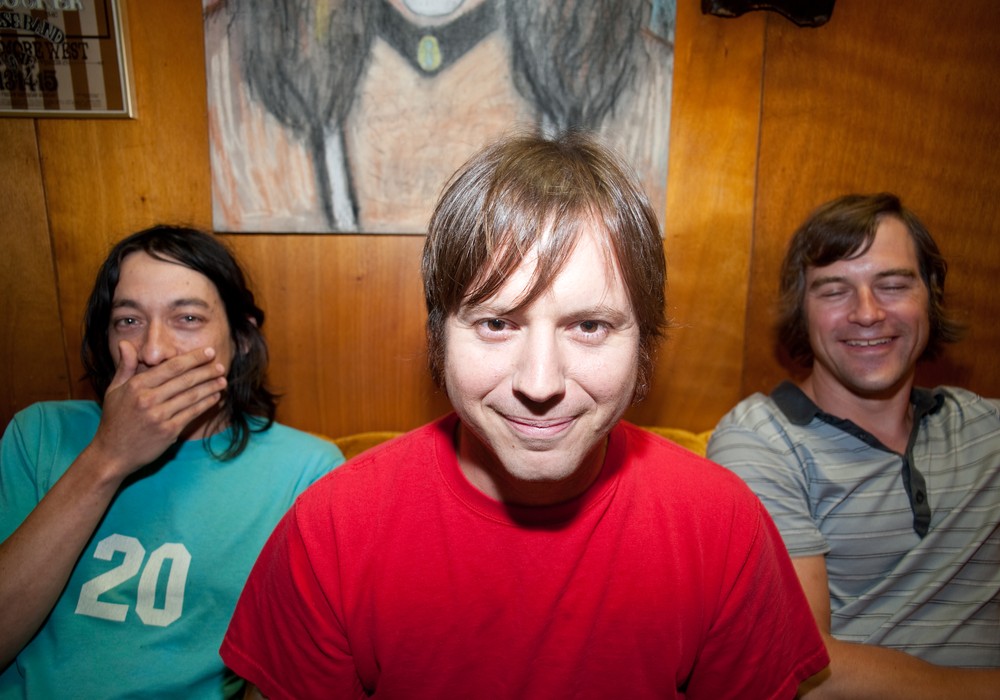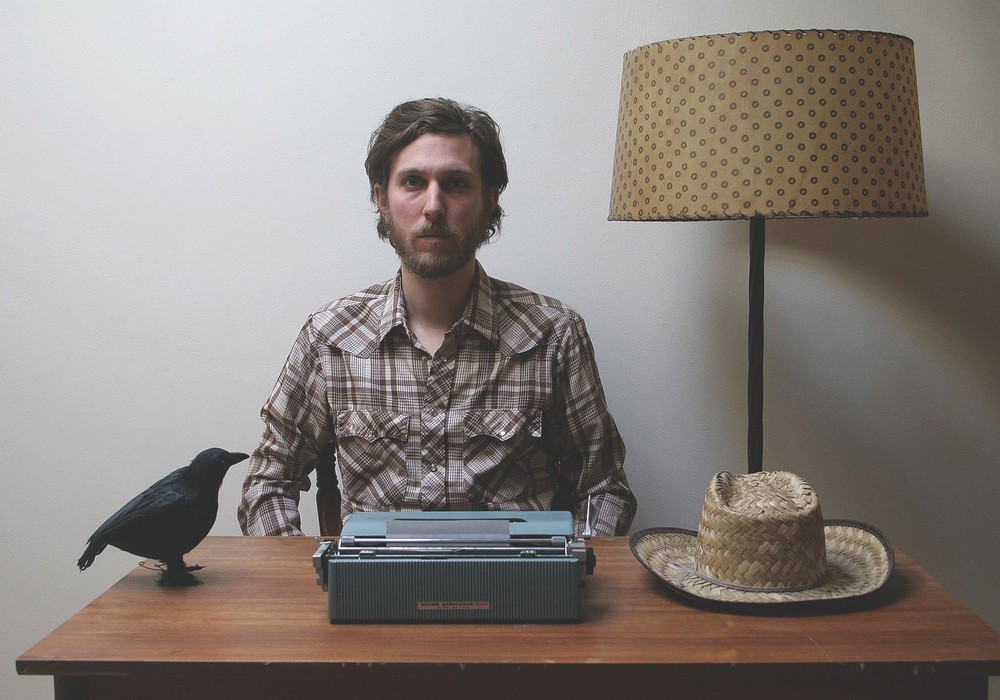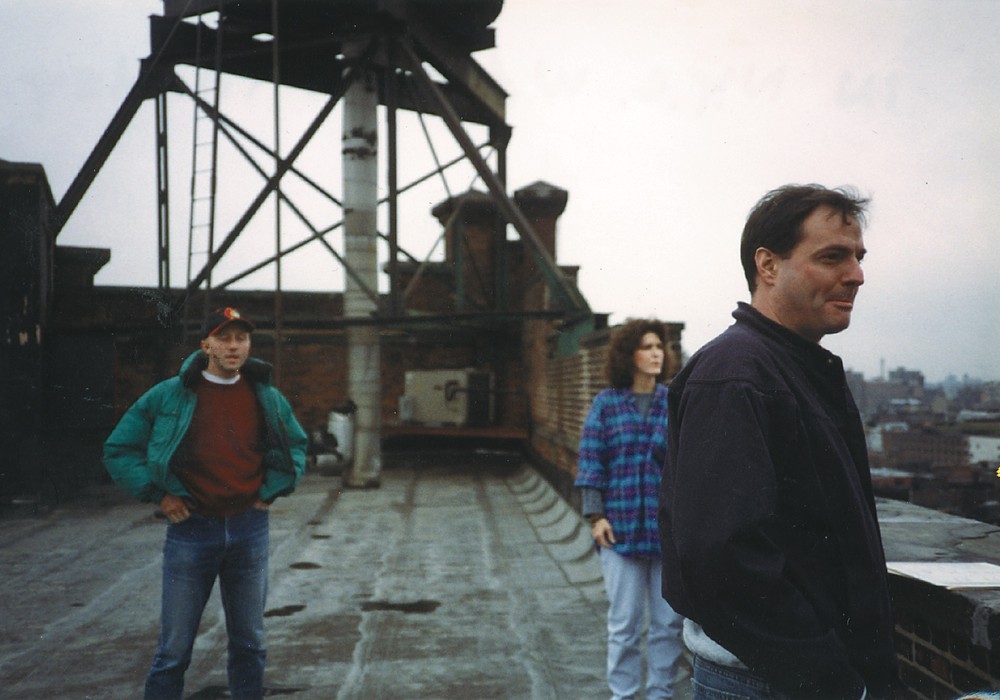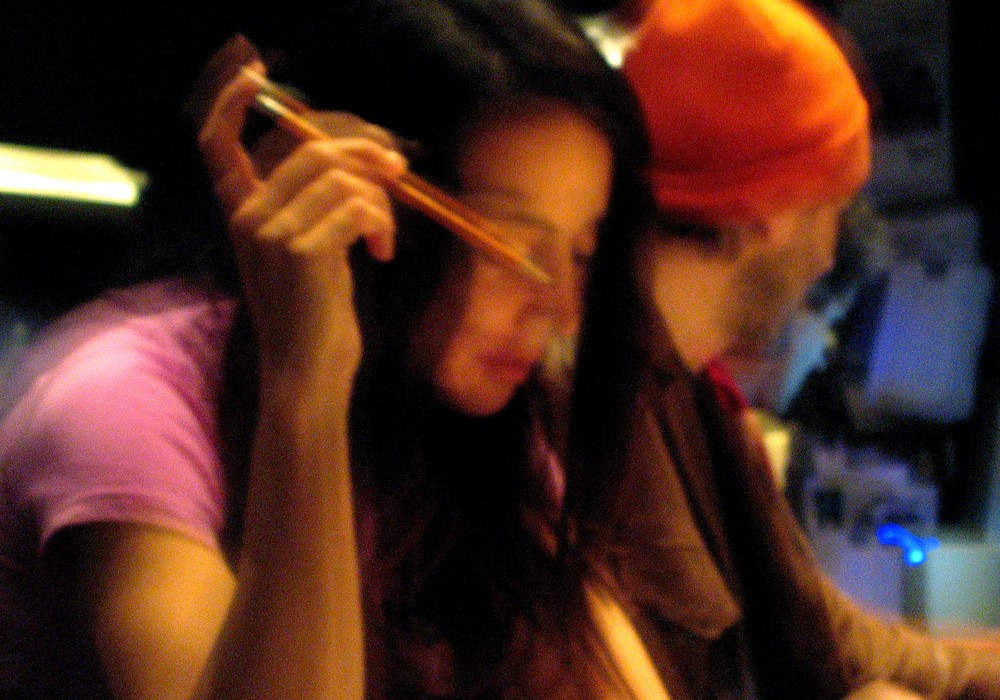Ten years ago, Bruce Watson was just another would-be musician, running a department store by day in his adopted home of Oxford, Mississippi, and recording demos on his home 8-track for his friends in local bands. With a burgeoning scene on the rise featuring the likes of Blue Mountain, Neilson Hubbard and Clay Jones, John Stirratt (Uncle Tupelo/Wilco) and Garrison Starr, Watson stayed pretty busy on nights and weekends as his studios progressed from spare bedroom to "basements, to sheds, to wherever." But one day in 1992, all that changed. Fat Possum Records, a new local label formed in order to preserve North Mississippi's Hill Country blues style, was preparing to record Junior Kimbrough, one of the progenitors of the sound. They had a name producer lined up in the late music critic Robert Palmer, and they had a spot in mind for the recording — Kimbrough's tiny juke joint north of Oxford in Marshall County (which was once described by former Living Blues editor David Nelson as "a place where the laws of gravity don't even apply"). All they needed was the means to capture the performance of Kimbrough and his band. Then came the day that changed Bruce Watson's life.
"There was no one else around that had any recording equipment," Watson, a Missouri native, recalled with a laugh. "So by being the only guy around, I got invited."
That first Fat Possum release, Kimbrough's All Night Long, was recorded live in the old rundown house that the elder bluesman operated as a nightclub. "Going into Junior's club just changed my life," Watson said. "Looking back, that was the point that everything changed for me. In those three days that we set up to record, almost everything I thought I knew about music went out the door."
Like many his age, the 40-year-old Watson grew up with no direct attachment to the blues. Raised on a healthy diet of Thin Lizzy and AC/DC before discovering punk rock and its mutant offspring, alternative rock, Watson had no interest in "all that B.B. King 12-bar blues and all that watered-down Chicago blues stuff." But Kimbrough's haunting, droning, trance-like take on the blues took Watson's soul. "Nobody's music has ever touched me the way Junior's did," he said. "From the moment I heard him, I knew what I wanted to do — I wanted to make records with these guys. And from then on, I did everything I could to make it happen."
Thus commenced the education of Bruce Watson. "We set up in the juke joint and recorded live," Watson said of the All Night Long session. "So I learned a lot of stuff from Robert Palmer, as far as like picking up a lot of ambient noises. He would just go find a corner and stick a mic up in it and all kinds of crazy mic'ing techniques, things he figured out from hanging around the old Hi Studio in Memphis in the early days where he picked up a lot from Willie Mitchell. So, he'd tell me stories about that, and it got me pretty interested in it."
"Pretty interested" is an understatement. Today, Watson is Fat Possum's general manager, as well as a partner of FP owner Matthew Johnson in the label's publishing company and Money Shot recording studio, an analog/digital facility located in an old school lunchroom building in the woods outside of Water Valley, Mississippi. He's been involved in most of the label's releases, from bluesman R.L. Burnside's chaotic collaboration with the Jon Spencer Blues Explosion, A Ass Pocket of Whiskey, to the largely acoustic recordings of Cedell Davis and the garage-y punk rock of the Neckbones. By early 2004, Watson had more than 50 producing, engineering or mixing credits on his resume.
Following the success of All Night Long (which received a four-star review in Rolling Stone), the Fat Possum team stuck with the formula of recording live on site. "We kinda got stuck in an ADAT world, because we were basically working out of a basement," Watson said. "We didn't have any money, so we were making records for like $300 on ADATs. They were cheap to record with; you could just throw them in the back of the car with some microphones and a Mackie board."
This method worked for a few years and a couple dozen releases. In 1996, Fat Possum inked a deal with distributor Epitaph and started looking toward building a proper studio facility. Eventually, they settled on an old white clapboard building in the sticks. "We got to the point where we were looking for a building to buy to put the studio in. We looked at a bunch of different places and none of 'em seemed right," Watson said. "But we found this place, which was an old school cafeteria. It's got three or four acres [of land], so the neighbors aren't right up on you. We just whittled out a studio from what was here. We didn't do too much, just put in a sound booth and put in some glass. That was about it."
With the new digs came a change in format to a more blues-friendly (but maintenance-challenged) one-inch Scully 8-track. Watson and Johnson dug the sound, but found "that stuff is so hard to find parts for," and ultimately secured a one-inch 16-track Tascam 85-16B recording machine. Nowadays, Watson records onto a Studer A-80 2-inch 16-track, then dumps the tracks into Pro Tools for mixing and editing. "It's really the best of both worlds," Watson said. "I love the digital stuff, but for blues and rock there's nothing that sounds like the two- inch machine."
Continuing in their tradition of live recordings of Hill Country bluesmen, Watson and Johnson recorded and released CDs by R.L. Burnside and Cedell Davis, among others. Burnside's second Fat Possum release, Too Bad, Jim, caught the ears of the Jon Spencer Blues Explosion, who took the aging musician on the road with them. That relationship led to A Ass Pocket of Whiskey, the Burnside/Spencer collaboration that was recorded in a barn (on what had fittingly been the first electric farm in the state) near Holly Springs, Mississippi, during an ice storm. "We rented a hunting lodge and recorded it in this old barn that was in total disarray and was falling down," Watson recalled. The plan was for the band and Burnside to stop in and spend the day recording between gigs in Birmingham and Memphis, but thanks to the storm, their drive from Alabama took nearly 12 hours. "So we made the record in four hours," Watson said. To date, A Ass Pocket..., a 1996 Fat Possum/Matador co-release, has sold some quarter- million copies worldwide. "That totally opened us up to a whole hipster scene."
Indeed, Fat Possum's exposure to the rock world changed everything, and soon everyone from alt-rockers Beck and Iggy Pop to folky bluesmen John Hammond and Eric Anderson wanted to get close to this amazing unheard music issuing from the Hill Country on the opposite side of the Magnolia State from the more renowned Delta. This cross-pollination eventually led to a new take on the blues, as Fat Possum combined its decidedly old-school approach to live recording with the burgeoning remix field. Beck producer and remix expert Tom Rothrock produced Burnside's groundbreaking Come On In release, and the results were heard everywhere from Nissan car commercials to the soundtrack of HBO's The Sopranos.
"Tom works out of L.A., so I'd cut the basic tracks here," said Watson of the collaboration. "We'd work back and forth. He'd send me loops and stuff and tell me, 'Get Kenny [Brown] or Cedric [Burnside ] to play over this.' I'd put the stuff on the computer, and get the guys to play and send it back to him. So we were basically just sending stuff back and forth. But he produced it. It was his deal." The result was a dynamic mix of old and new, with raw guitars (courtesy of Burnside and longtime guitarist Brown) riding over loops of grandson Cedric's fluid drumbeats with the elder Burnside's world-weary vocals floating in and out of the mix.
The follow-up to Come On In, 2000's Wish I Were In Heaven Sitting Down, was produced by Smiths producer John Porter, who traveled to Mississippi for basic tracking before taking the recordings back to England for remixing. The result was much like the previous release but saw more of the creative control fall to Epitaph.
These days, Fat Possum is continuing to work with its native blues tradition, while branching out into more rock-oriented waters with artists such as The Black Keys, Paul Westerberg's Grandpaboy, and Thee Shams. The label is a haven for artists such as the Keys or Westerberg, who both recorded their releases at home and submitted directly to the label. Watson says regardless of genre, the secret is in capturing a performance. "With T-Model Ford and those guys, it's all cut totally live," he said. "Like, with T-Model, if I put a pair of headphones on him and try to get him to overdub something, that's just not what he, or any of those guys, does. With the blues guys, other than those remix recordings, all the recordings have been totally live, including vocals. Everything bleeds over into the vocals, which can be good or bad."
With headphones out of the question for many of the label's elder blues players, Watson relies on a small Fender monitor system during recording. "I want to make it as comfortable as I can for those guys," he said, adding that a certain level of comfort adds to the live vibe. "It's just another gig for them. We pay them to come play."
In keeping with his casual attitude toward recording, Watson generally sticks to the basics when it comes to choosing microphones for his sessions. "I like 57s and 421s on guitar amps," he said. "On the kick drum, I'll use an AKG D112. Basically the standard tools of the trade. We've got a Neumann 103 mic for vocals, and a couple of old, cool tube mics and stuff. But you know, I like to have good preamps and all, but as far as mics, nothing too fancy. Pretty basic. Pretty much, we try to keep stuff close-mic'ed and as separated as possible, because usually everybody's playing in the same room. Then maybe I'll throw up a room mic or something. I use a little bit of compression on bass, a little bit of compression on the kick drum. It depends on what sounds right. We don't do anything too fancy."
Watson's philosophy toward recording sessions, he says, hasn't changed much since that first Kimbrough session in the backwoods juke joint. "It's probably not the right way, but it's the way I've learned to do it," he said. "I like the interaction between musicians and the magic that happens there, as opposed to creating some kind of magic on a computer. I've done some recordings where we've done things separately, and I'm open to anything. But, for the most part, it's really straight to tape; the shortest path possible is usually the best. Anything you want to do on the other end is fine, but I like to get things to tape by the shortest path."
"Doing things on the other end" includes Fat Possum's continuing approach to melding the rock and blues worlds with an upcoming R.L. Burnside record that Watson describes as "Detroit-meets-North Mississippi Hill Country." The release will feature collaborations between Burnside and younger artists such as Kid Rock. "We took some of the old recordings, and Tino Gross, a producer who's worked with Kid Rock a lot, took those and made loops of the vocals and stuff. Then he had Kid Rock's band play on some of it, and I had Kenny and Cedric play on some of it. Then I got R.L. to do some new vocals over that."
According to Watson, he has worked out his combined tape-and-digital approach to recording such that the transfer from studio to studio goes pretty smoothly. "It's really not a problem at all," he said. "I transfer direct [with a Digi 001], and it's really just a matter of time. Pro Tools is so user-friendly, it's really no problem at all."
Money Shot's control room is filled with equipment, ranging from ancient Clark compressors to a Roland Space Echo and decidedly more modern digital gear. Although his choices for outboard gear run the gamut, Watson has his favorites. "I've got an old Gates [SA-39] radio tube compressor that I love for vocals," he said. And although he has a full complement of snazzy off-the-shelf preamps and compressors, he usually leans toward custom made pieces from local resident Frank Lacy, a studio technician who builds affordable, high end processing gear in his spare time. "Frank Lacy's a genius, he really is. All of his gear is great," said Watson, whose favorite units include the JFL MP F3C preamp, which is based on the Neve 1073. "I've got a Universal tube preamp and some of the Joe Meek [Tape Op #100] stuff and the Brent Averill stuff. All of that's good stuff, but the Frank Lacy stuff is so good, it's ridiculous. I use it on everything. For basic reverb, I use the Lexicon PCM70," he continued. "The only thing that's really good on those things is the plate reverb, and that's all anybody uses on them."
Watson records through a Sony MXP 3000 series console (since mastering Pro Tools for mixing, Watson has disconnected the automation), and sounds are monitored through either Yamaha NS 10Ms or a pair of Tannoy Reveals powered by a Halfler Pro 2400 power amp. "It's all the basic tools of the trade, nothing really fancy," Watson surmised. "I don't really go out and try to buy the latest cool toys. It's usually the stuff I can find in pawn shops."
With Fat Possum's myriad of ongoing projects, Watson's duties with the business side of the label, as well as his work recording the label's artists, leave him little time for outside projects. "I'm not really in the studio business," he said. "I just don't have time. If there's a side project that I like, or if it's a friend or something, I'll try to make time for it. But I stay so busy with the label. I realize having that much work is a luxury in the music business, so I'm taking advantage of it, because I know it could go away any day."
